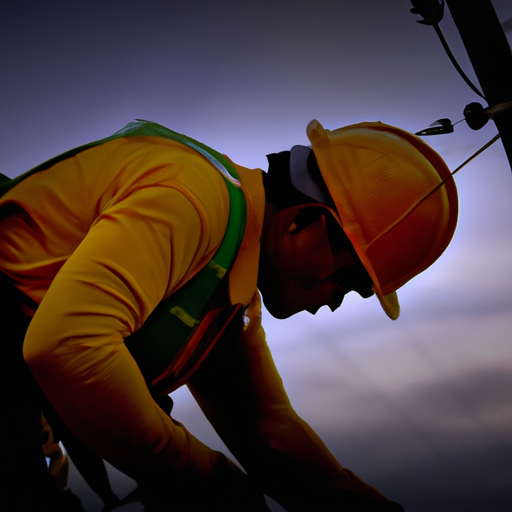In this article, you will learn about the advantages and disadvantages of being a lineworker. Lineworkers play a crucial role in our society, as they are responsible for installing, repairing, and maintaining electrical power systems. However, this profession also comes with its own set of challenges and drawbacks. By understanding the pros and cons of being a lineworker, you will gain a better insight into this important occupation.
One of the advantages of being a lineworker is the sense of fulfillment that comes from helping to provide electricity to communities. These skilled professionals work tirelessly to ensure that homes, businesses, and essential services have a reliable power supply. Additionally, lineworkers often enjoy good job security, as there is a constant demand for their expertise. On the other hand, one of the main disadvantages of this profession is the inherent risk involved. Lineworkers often have to work at great heights and in challenging weather conditions, putting them at a higher risk of accidents or injuries. The nature of the job also requires them to be on call 24/7, which can disrupt their personal lives and make it difficult to maintain a work-life balance. Overall, being a lineworker can be a rewarding career choice, but it’s important to consider both the advantages and disadvantages before pursuing this path.
Exploring the Advantages and Disadvantages of Lineworkers
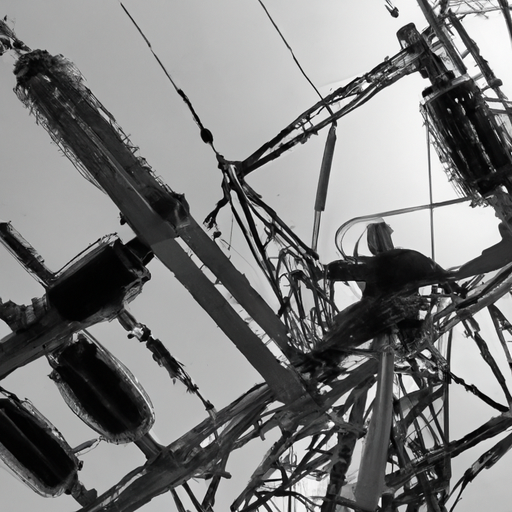
Definition of Lineworkers
Lineworkers, also known as electrical line workers or power line technicians, are skilled professionals who work in the field of electrical power distribution and transmission. They are responsible for installing, maintaining, and repairing electrical power systems, ensuring the delivery of electricity to homes, businesses, and industries. Lineworkers play a crucial role in maintaining power infrastructure and ensuring reliable power supply to communities.
Roles and Responsibilities
Lineworkers have a wide range of roles and responsibilities that contribute to the efficient and safe functioning of electrical power systems. They are responsible for:
- Installing and repairing electrical power lines and equipment
- Climbing poles or working from bucket trucks to reach overhead power lines
- Conducting routine inspections to identify and repair any faults or damages
- Responding to power outages and emergencies to restore electrical services quickly
- Testing electrical equipment and making necessary adjustments
- Following safety protocols and using protective gear to minimize risks
- Collaborating with other professionals such as engineers, technicians, and electricians to ensure smooth power transmission and distribution
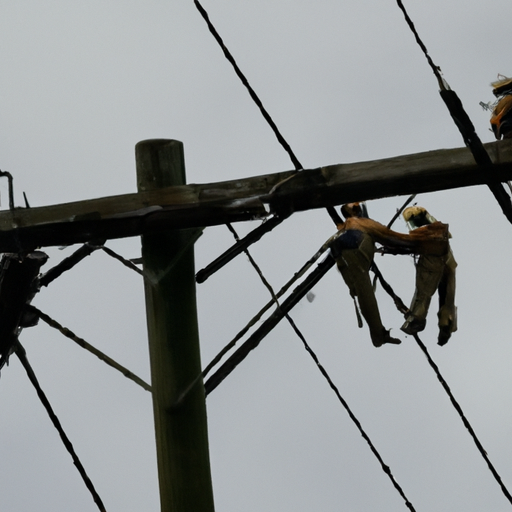
Skills and Training
Being a lineworker requires a combination of technical skills, physical fitness, and mental resilience. Some of the essential skills for lineworkers include:
- Technical knowledge of electrical systems and equipment
- Ability to read and interpret electrical schematics and blueprints
- Proficiency in operating specialized tools and equipment
- Physical strength and agility to climb poles and work at heights
- Problem-solving and troubleshooting skills to identify and resolve electrical issues
- Stress management and decision-making skills to handle emergencies effectively
- Strong communication and teamwork skills to collaborate with colleagues and communicate with customers
Lineworkers undergo extensive training to acquire the necessary skills and knowledge for their profession. They typically complete an apprenticeship program that combines classroom instruction with on-the-job training. This training equips them with the technical expertise and safety protocols required to perform their duties safely and efficiently.
Advantages of Being a Lineworker
Secure Job Opportunities
One of the significant advantages of being a lineworker is the availability of secure job opportunities. As the demand for electricity continues to grow, the need for skilled lineworkers remains constant. With aging infrastructure and the expansion of power systems, there is a consistent requirement for lineworkers to maintain and upgrade electrical power lines. This stability in job prospects provides lineworkers with job security and the peace of mind that comes with a steady income.
Competitive Salary and Benefits
Lineworkers typically receive a competitive salary that reflects the technical skills and physical demands of their profession. The compensation packages for lineworkers often include additional benefits such as healthcare coverage, retirement plans, and paid vacation time. These benefits contribute to a stable and rewarding career for lineworkers.
Physical and Mental Fitness
The nature of the lineworker profession demands physical fitness and mental resilience. The physical demands of climbing utility poles and working at heights require strength, agility, and balance. The challenging working conditions test both the physical and mental endurance of lineworkers, which contributes to their overall fitness. The rigorous work also fosters a sense of accomplishment and self-confidence in lineworkers.
Opportunities for Advancement
Lineworkers have opportunities for career advancement and professional growth. With experience and additional training, lineworkers can advance to supervisory or managerial positions within their organizations. They may also specialize in specific areas such as working on high-voltage power lines or renewable energy systems. Advancement opportunities provide lineworkers with the potential for increased responsibility, higher income, and greater job satisfaction.
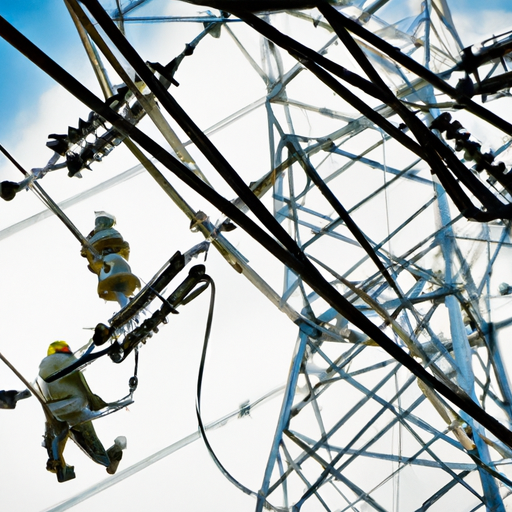
Disadvantages of Being a Lineworker
Challenging Working Conditions
Lineworkers often face challenging working conditions. They may be required to work in extreme weather conditions, including heat, cold, rain, and storms. These conditions can make the job physically and mentally demanding, as lineworkers must often work long hours and make quick decisions to ensure the safety and reliability of the electrical power system.
Physical Demands and Risks
The physical demands of being a lineworker can be strenuous. Climbing poles, working at heights, and carrying heavy equipment require strength and endurance. Lineworkers are also exposed to various risks, including electrical shock, falls, and accidents. While safety protocols and protective gear minimize these risks, the job inherently carries a level of danger, which can be a disadvantage for some individuals.
Work-Life Balance Challenges
The nature of the lineworker profession can pose challenges to maintaining a healthy work-life balance. Power outages and emergencies can occur at any time, requiring lineworkers to be on call or work irregular hours, including nights, weekends, and holidays. This can disrupt personal plans and put a strain on family and social relationships.
Emotional Toll
Lineworkers may also experience emotional challenges related to their work. The job can be stressful, as lineworkers must perform under pressure and make critical decisions quickly. Additionally, lineworkers often witness accidents or hazardous situations, which can have an emotional impact. The emotional toll of the lineworker profession should not be underestimated and should be addressed to ensure the well-being of lineworkers.
Importance of Lineworkers
Ensuring Reliable Power Supply
Lineworkers play a vital role in ensuring a reliable power supply to communities. They are responsible for maintaining and repairing power lines, transformers, and other equipment that deliver electricity. By addressing faults and issues promptly, lineworkers minimize power outages and disruptions, ensuring a consistent supply of electricity for homes, businesses, and industries.
Emergency Restoration of Power Outages
During power outages caused by severe weather conditions, accidents, or equipment failures, lineworkers are at the forefront of emergency restoration efforts. They work tirelessly to identify and repair the source of the outage, strategically coordinating their efforts to restore power quickly and safely. Their expertise and efficiency in restoring power during emergencies are crucial for public safety and the functioning of essential services.
Improving Public Safety
Lineworkers also contribute to improving public safety by identifying and resolving potential electrical hazards. Through routine inspections and maintenance, they ensure that power lines and equipment meet safety standards. By maintaining the integrity of the electrical power system, lineworkers reduce the risk of electrical accidents, fires, and other hazards, thus safeguarding communities.
Supporting Infrastructure Development
As communities grow and evolve, lineworkers play a crucial role in supporting infrastructure development. They collaborate with engineers and other professionals to plan and install electrical power systems for new construction projects. By expanding and upgrading power infrastructure, lineworkers contribute to the growth and development of cities, towns, and industries.
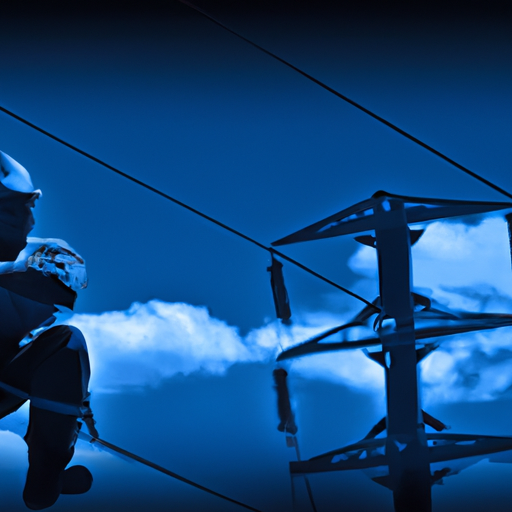
Positive Impact on Communities
Key Contributor to Economic Growth
Lineworkers are essential for economic growth and prosperity. Reliable and efficient electrical power is a fundamental requirement for businesses to thrive and expand. Lineworkers ensure the uninterrupted supply of electricity to commercial and industrial establishments, enabling economic activities and job creation. Their work directly contributes to the overall economic development of communities.
Building Stronger and Safer Communities
Lineworkers play a significant role in building stronger and safer communities. Through their efforts in maintaining power infrastructure and restoring power during emergencies, lineworkers contribute to community resilience. Access to reliable electricity improves the quality of life for individuals and enhances community services such as healthcare facilities, schools, and public transportation.
Negative Impact on Lineworkers’ Health and Well-being
Stress-related Health Issues
The demanding nature of the lineworker profession can lead to stress-related health issues. High-pressure situations, irregular working hours, and the responsibility of ensuring public safety can take a toll on lineworkers’ mental and physical well-being. Chronic stress can lead to various health issues such as cardiovascular problems, digestive disorders, and compromised immune function.
Long-Term Impact on Physical Health
The physical demands and risks involved in being a lineworker can have long-term consequences for physical health. Frequent climbing, heavy lifting, and exposure to environmental factors can lead to musculoskeletal injuries, joint problems, and chronic pain. The rigorous physical activity required in the profession may also cause wear and tear on the body over time.
Mental Health Challenges
Lineworkers may experience mental health challenges due to the nature of their work. Witnessing accidents, dealing with emergencies, and working in high-pressure situations can contribute to anxiety, depression, and post-traumatic stress disorder (PTSD). It is crucial for lineworkers to have access to mental health support and resources to address these challenges effectively.
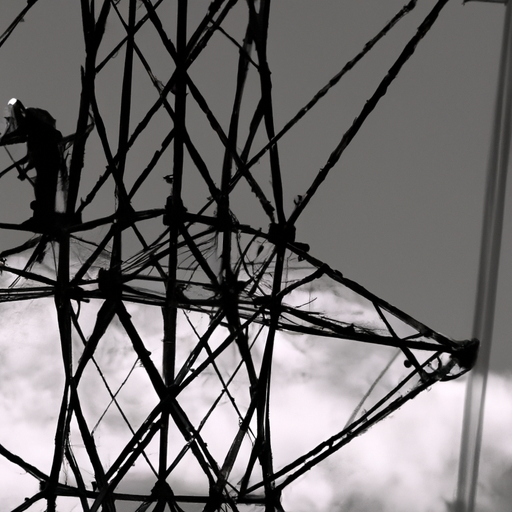
Advancements in Lineworker Industry
Introduction of New Technologies
The lineworker industry is evolving with the introduction of new technologies. Advanced equipment and tools enhance productivity, efficiency, and safety for lineworkers. Drones, for example, are used for inspections and surveillance of power lines, reducing the need for climbing poles. Augmented reality (AR) technology provides lineworkers with real-time data and instructions, improving their ability to diagnose and resolve electrical issues.
Training and Education Opportunities
As the lineworker industry evolves, there are increased opportunities for training and education. Continuous learning and skill development are essential for lineworkers to stay updated with safety standards, emerging technologies, and best practices. Training programs and certifications help lineworkers expand their knowledge and enhance their professional competencies.
Future Outlook for Lineworkers
Increasing Demand for Skilled Lineworkers
The demand for skilled lineworkers is expected to increase in the coming years. The growth in population, urbanization, and the development of renewable energy sources will require expanded power infrastructure and maintenance. Skilled lineworkers will be essential to meet this demand and ensure the reliable delivery of electricity.
Potential Job Market Growth
The lineworker profession offers promising job market growth. As older lineworkers retire, there will be opportunities for newcomers to enter the field and fill the gaps. Additionally, the expansion of renewable energy sources and the need for grid integration will create new job opportunities for lineworkers with expertise in clean energy technologies.
Adapting to Changing Energy Needs
Lineworkers need to adapt to changing energy needs and technological advancements. As the world transitions to a more sustainable energy future, lineworkers will be at the forefront of integrating renewable energy sources into the power grid. This shift requires lineworkers to acquire new skills and knowledge to work with solar panels, wind turbines, and energy storage systems.
The Role of Lineworkers in Renewable Energy
Transition to Clean Energy
Lineworkers play a crucial role in the transition to clean energy. As renewable energy sources such as solar and wind power become more prevalent, lineworkers are responsible for connecting these sources to the power grid. They ensure the smooth integration of renewable energy systems, contributing to a cleaner and more sustainable energy future.
Renewable Energy Job Creation
The growth of renewable energy provides job opportunities for lineworkers. The installation, maintenance, and operation of renewable energy systems require skilled lineworkers with knowledge of clean energy technologies. The expansion of the renewable energy sector not only supports the transition to a low-carbon economy but also creates employment opportunities for lineworkers.
Conclusion
The lineworker profession offers both advantages and disadvantages. The job provides secure employment, competitive salaries, and opportunities for advancement. Lineworkers play a vital role in ensuring reliable power supply, emergency restoration, and public safety. They have a positive impact on communities by supporting economic growth and building stronger and safer neighborhoods.
However, the profession also poses challenges, including challenging working conditions, physical demands, and potential impacts on work-life balance and well-being. It is crucial to address these challenges through safety measures, support systems, and a focus on lineworker well-being.
As the lineworker industry evolves, advancements in technology and training offer new opportunities for lineworkers. The demand for skilled lineworkers is expected to increase, especially in the renewable energy sector. Lineworkers will continue to play a vital role in the transition to clean energy and the development of sustainable power infrastructure.
Overall, lineworkers remain essential and valued professionals in the electrical power industry. Their dedication, skills, and contributions to reliable power supply and public safety make them an integral part of our communities.




